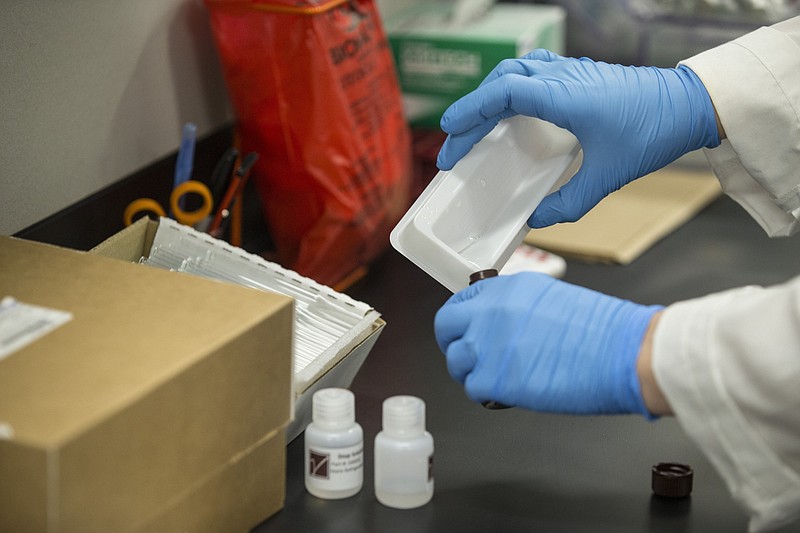Arkansas Attorney General Leslie Rutledge will allocate $250,000 for essential transportation related to opioid deaths across the state.
Rutledge said in a news release Wednesday the allocation will help the State Crime Lab transport victims of opioid overdose to the crime lab for an autopsy to determine the exact cause of death.
"Deadly illegal drugs, such as fentanyl, are continuing to devastate families on all sides of Arkansas and we must work together to combat the crisis," Rutledge said. "The State Crime Lab plays a critical role in investigating overdose deaths, and this allocation will continue to assist Arkansas in our fight to eliminate the opioid epidemic."
According to the Arkansas State Crime Lab, there were at least 493 drug overdose deaths in 2021. Of those, 281 were caused by fentanyl and 43 autopsies are still pending. In 2020, there were 329 drug overdose related deaths with 148 caused by fentanyl, and in 2019 there were 263 drug overdose related deaths with 80 caused by fentanyl.
"I've always said that in forensic science we see the worst things that one human being can do to another," Arkansas State Crime Lab Director Kermit B. Channell II said in the news release. "Now we see how opioids and illicit drugs are affecting society and the citizens of Arkansas. The cases we see touch everyone, and no crime is victimless."
The State Crime Lab is the only fully-functional forensic laboratory in the state.
Earlier this year, Gov. Asa Hutchinson signed House Bill 1026, the appropriation for the state Department of Public Safety for fiscal 2023, that included the ability to allow the State Crime Laboratory to hire an additional five forensic scientists to increase testing of sexual assault kits and meet the legal turnaround time of 60 days required by Act 839 of 2019. That would boost the crime lab's spending authority by about $312,000 to $13.9 million.
In January, some lawmakers said they want the state Crime Lab to be able to comply with the 2019 law after hearing the average turnaround time is about 10 months.
